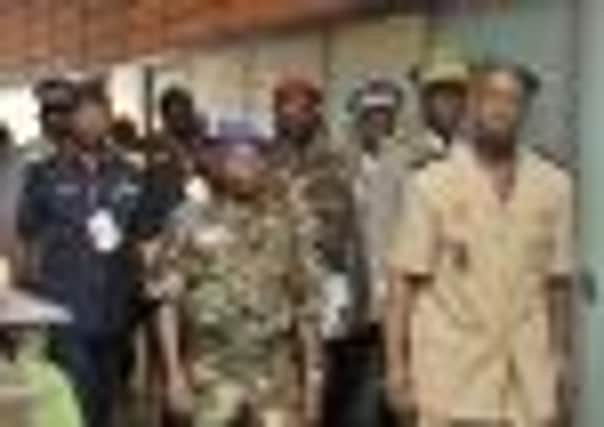Mali rebels order ceasefire in north


Moussa Ag Assarid, a spokesman for the National Movement for the Liberation of the Azawad, said the group was declaring the ceasefire to allow humanitarian aid to resume in the north, where shops were looted.
In Ivory Coast, the military chiefs of the nations bordering Mali met to hash out their plan for a military intervention. Deputy Ivorian defence minister Paul Koffi said military action is being considered to reverse the coup that deposed Mali’s president last month, as well as to preserve Mali’s territorial integrity after the rebel advance in the north.
Advertisement
Hide AdAdvertisement
Hide AdHe instructed the army chiefs of the 15 nations in West Africa to draft a detailed plan, including how many troops each intends to send, how quickly they could ready them and what logistical means they plan to contribute.
The rebels launched their insurgency in January, saying they wanted to establish an independent Tuareg homeland in the north, known as the Azawad. They only succeeded in taking small towns until 21 March, when disgruntled soldiers stormed the presidential palace in the distant capital of Bamako, overthrowing the democratically elected president.
In the confusion that followed the coup, the rebels launched a new offensive and succeeded in taking the capitals of the three main northern provinces, including Kidal, which fell last Friday, Gao on Saturday and Timbuktu on Sunday.
“The NMLA has reached the end of its military operations for the liberation of the territory of the Azawad,” said Mr Assarid, speaking by telephone from Paris. “Since the day before yesterday when our units reached Douentza which we consider to be the frontier of the Azawad,” he said, referring to a town some 375 miles from Bamako, “the military offensive is declared over.”
Mr Assarid’s group is the largest rebel group involved in the offensive, but it is not the only one, and in the three main towns in the north, local officials say they cannot be sure which of the rebel armies has the upper hand. Western observers have expressed concern over the presence of an Islamist faction called Ansar Dine, which planted its ominous black flag in all three of the provincial capitals. This week, the group announced it was imposing Sharia law in the ancient city of Timbuktu.
The mayor of Timbuktu said nearly all of the estimated 300 Christians based in the city fled after Ansar Dine’s spiritual chief Iyad Ag Ghali gave an interview on local radio outlining the tenets of Sharia law.
“The problem for us is that we don’t know who is the master of our town,” said the mayor, Ousmane Halle.
“What I deplore is the departure of the Christian community,” he said. The city has been honoured as a Unesco World Heritage site for its collection of ancient Islamic manuscripts, propagating a moderate interpretation of the religion.
Advertisement
Hide AdAdvertisement
Hide Ad“Many said to me that they are obliged to leave,” he said. “And they are right. I cannot guarantee their safety. And these are people that have lived side by side with us for centuries.”
United Nations Secretary-General Ban Ki-moon has strongly condemned the forcible seizure of power in Mali.